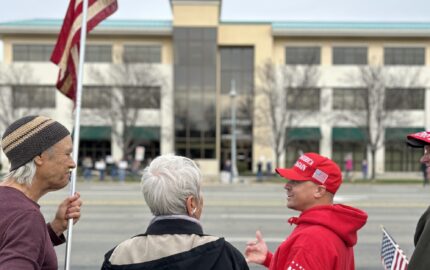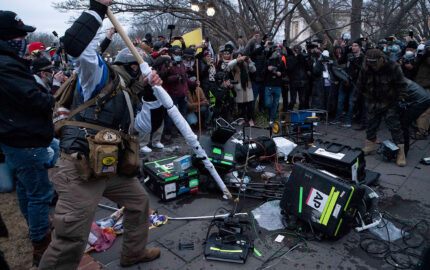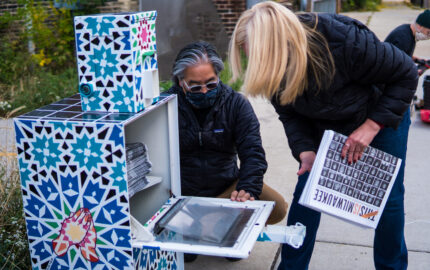
It was on a hunch that Marcus Stern, a reporter in the Washington, D.C. bureau of the Copley News Service, launched the investigation that brought down California Congressman Randy “Duke” Cunningham.
When Cunningham was asked why he had taken two trips to Saudi Arabia in 2004, the representative said he wanted to improve U.S. relations with the Saudis. Stern didn’t believe him. He wondered if Cunningham’s lifestyle had benefited from the trips. While searching property records, he learned that Cunningham had sold his house at an inflated price to the owner of a fast-growing defense company and had bought a rather expensive mansion.
More reporters joined the investigation, which resulted in stories published in the San Diego Union-Tribune, then a Copley paper. Months later Cunningham resigned from the House, pleaded guilty to taking $2.4 million in bribes, and was sent to prison. The paper and news service shared a Pulitzer Prize in National Reporting.
Today Copley News Service no longer exists. The Union-Tribune has no Washington bureau and neither do many other news organizations and daily papers across the country. As a result, fewer reporters are holding Congressional delegations accountable to voters back home. Now there are faint stirrings of a reversal. Among the regional nonprofit online news organizations established in recent years, there is a growing sense that thorough coverage requires a presence in the nation’s capital. Two sites, in particular, have committed new resources to D.C.-based reporting. Perhaps it’s no coincidence that the leaders of both are veterans of newspapers that once had bureaus in Washington.
Margaret Wolf Freivogel, editor of the St. Louis Beacon, an online regional news site, explained on the site’s blog her rationale for hiring a D.C.-based reporter: “Like it or not, what happens in Washington matters to us in St. Louis. … A good Washington correspondent explains what role St. Louis area officials and interests play in creating and implementing that policy, how St. Louisans are affected, who gains and loses and what problems remain unsolved.”
Freivogel was one of eight reporters when she worked in the St. Louis Post-Dispatch’s Washington bureau, which is now down to one reporter. In October, the Beacon hired Robert Koenig, a St. Louis native and a veteran of the Post-Dispatch bureau, to report from D.C.
Lorie Hearn, executive director of the Watchdog Institute in San Diego, is pleased to revive coverage of the local Congressional delegation. Brooke Williams, an investigative reporter for the institute, a nonprofit investigative center at San Diego State University, opened the bureau at the National Press Club on September 7. Williams began her career at the Center for Public Integrity in D.C. so she returns to the nation’s capital with sophisticated database skills and years of experience in investigative journalism.
Hearn, a former senior editor at The San Diego Union-Tribune, wants to establish D.C. coverage as a signature of the institute. Williams provides accountability reporting for the institute’s media partners. In addition, the institute’s website devotes a page to each U.S. representative for the San Diego area so constituents have at their fingertips up-to-date information about the sponsorship of bills, lobbying activities, campaign contributions, and other financial disclosures.
“While essential, data alone cannot tell a story of how well local delegations are doing their jobs,” Hearn said. “Even in today’s digital world, nothing can replace a reporter on the scene who has sources, who can connect dots, and who can literally run down leads.”



